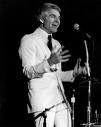snoreking wrote:Rested Gal -- a somewhat unrelated point, but I have noticed in this thread and several of your previous postings that you are more than just a tad cynical about a surgery solution. I had my UPPP twelve years ago. My Apnea readings were at that point in the upper seventies. (yup, 70's!) My surgeon told me that the BEST results I could expect would be about a 50% reduction, so I would still require lifelong cpap therapy. He was right on target. Post surgery sleep study was down from 70's to low 30's. Now, with an average pressure of 11 (apap range 7-14) I have an AHI that seldom exceeds 1.0. The surgery was a major pain in the neck, as it were, but in my instance, well worth it, I beleive, despite the fact that I will never know if I would have had the same results using cpap without the surgery.
Hi snoreking,
Yes, you're right about my being extremely cynical about the most common surgery (UPPP) when it's offered as being an
alternative to cpap by surgeons less truthful than your surgeon was with you. Your doctor made sure you understood it was unlikely to be a complete apnea cure for you.
I'm glad you ended up with a reduction in your AHI. However, since AHI severity and pressure needed to keep the throat open don't have much relationship with each other, there's no way (as you rightly pointed out) for most people to know if the surgery will even result in needing a lower pressure with cpap.
You had a good surgeon and you were lucky to be able to continue to use cpap later. Some people report having even more difficulties using cpap
after UPPP than they had with cpap before.
Actually, it's only UPPP that I get most cynical about.
Alternative treatments for sleep apnea such as Pillar Implants ALONG WITH a dental device like the TAP II are being reported as working very well as an actual
cure (resulting in less than 5 AHI on subsequent PSG's) for several people who post to the talkaboutsleep dental sleep medicine board, at least one of whom was in the moderate/severe range before.
I realize that neither you, snoreking, nor your surgeon was holding up UPPP as a "cure". If it has helped you to use cpap at a lower pressure than you would have had to use without the surgery; and if you do not have side effects from the surgery that make things more difficult in other ways for you, then it was a good thing for you to choose.
UPPP is not a good thing for most people to choose, however...imho. You see, I'm also cynical about how many really competent surgeons there are out there, as well as dismayed at the way so many people jump at even the tiniest chance that they might not have to "be on a machine" after all...perhaps not really listening to their doctor's cautioning statistics.
You chose a good doctor. A lot of people aren't as fortunate in the luck of the draw. You and your surgeon were both realistic about what to expect in your case.
Two interesting articles -- pro/con:
Upper Airway Surgery Does Have a Major Role in the Treatment of Obstructive Sleep Apnea by Nelson Powell MD
Upper Airway Surgery Does Not Have a Major Role in the Treatment of Obstructive Sleep Apnea by Barbara Phillips MD
snoreking, while not thinking of these next ones as a cure, I do believe some kinds of surgery are helpful toward making cpap use easier and more effective...turbinate reduction and sinus roto-rootering, in particular...to make it easier to get cpap treatment air through the snout.
For many reasons (sometimes hopeful, sometimes skeptical ) I keep updating these discussion links:
LINKS to surgery, turbinates, Pillar, TAP experiences











